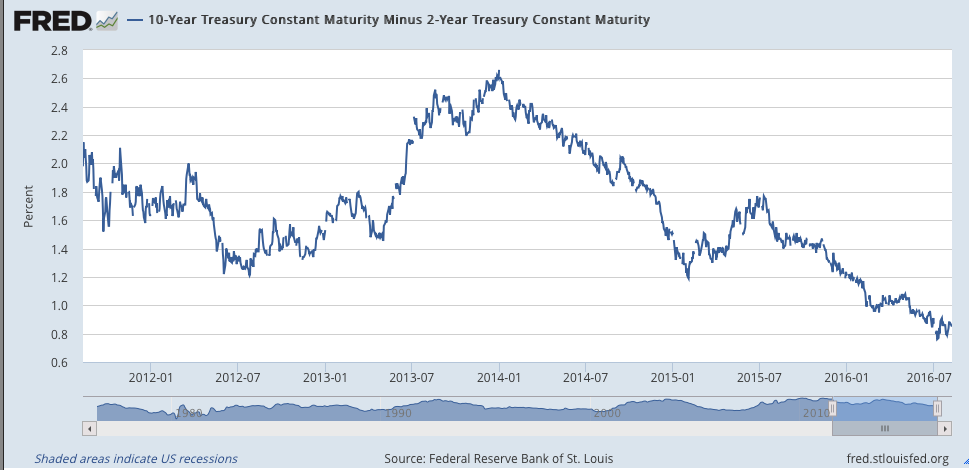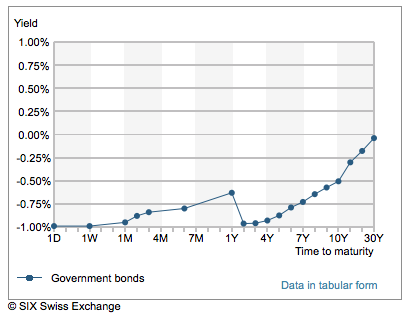Last week the Bank of England lowered their interest rates. This combined with previous moves by the ECB and the Bank of Japan and the reduced probability that the US Federal Reserve will increase rates soon is a reminder that any normalization of interest rates towards positive territory among advanced economies will have to wait a few more months, or years (or decades?).
The message from the Bank of England, which is not far from recent messages by the Bank of Japan or the ECB is that they could cut interest rates again if needed (or be more aggressive with QE purchases).
Long-term interest rates across the world decreased even further. The current levels of long-term interest rates have made the yield curve extremely flat.

And in several countries (e.g. Switzerland) interest rates at all horizons are falling into negative territory.
The fact that long term interest rates is typically seen as the outcome of large purchases of assets by central banks around the world. In fact, many see it as a success of monetary policy actions.
But if monetary policy is being successful we expect inflation expectations and growth expectations to increase. Both of these forces should push long-term interest rates higher not lower! Something is fundamentally not working when it comes to monetary policy and it is either the outcome of some forces that the central banks are unable to counteract or the fact that central banks are not getting their actions and communications right.
On the communications I will repeat the argument I made earlier: When central banks repeat over and over again that they can lower interest rates even more they are misleading some to believe that lower interest rates (long-term and short-term, real and nominal) are a measure of success of monetary policy. This is not right. Lower nominal interest rates across all maturities cannot be an objective when inflation and growth are seen as too low. Success must mean higher nominal interest rates. And success must mean at some point a steeper yield curve not a flatter one.
Why are central banks failing in their communications? I see two reasons:
1. They want to send a message that they are both powerful and not out of ammunition. Repeat with me: "Interest rates are low and they can get even lower."
2. These are interesting times. With short terms rates stuck around zero, all the action of the yield curve has to come from long-term rates and, in addition, QE and the massive purchase of assets is also a new phenomenon that is not always well understood by market participants.
My guess is that it is this combination of circumstances that are unusual by historical standards and the difficulty of communicating a complex monetary policy strategy by central banks that are sending long-term interest rates to even lower levels. These levels are not consistent with any reasonable scenario for growth or interest rates over the next decades. When 30 or even 50 year interest rates are negative or close to zero something is not right. Either this is the end of growth as we know it or the start of a 30-year period of extremely low inflation combined with deflation or our expectations are seriously off and we are up for an interesting surprise.

